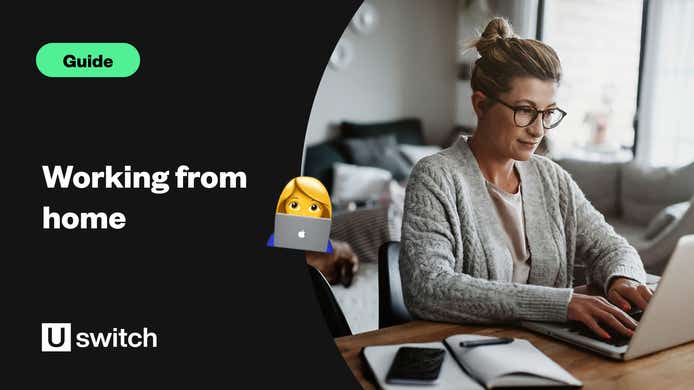Does home contents insurance cover working from home?
If you’re an employee working from home on occasion or full-time, your standard home contents insurance may offer some cover, but it depends on your policy. Most insurers include some level of cover for clerical work, such as using a laptop or taking phone calls.
However, things can get trickier if you:
- Keep stock or tools at home
- Have customers or clients visiting your property
- Regularly work with high-value equipment
In these cases, your insurer might see it as business use, which may not be covered under a standard policy.
Check your current contents policy or speak with your insurer to confirm whether your work setup is included. For more detail, see our guide on building and contents insurance.
Is my home office equipment covered?
Most policies will cover your personal possessions, like a laptop or monitor, but if these belong to your employer, the situation changes. Typically, your employer’s insurance should cover any equipment they provide for you to use at home.
But if you’re self-employed or using your own equipment, it’s worth checking your home contents policy. High-value items or specialist tools might require you to increase your cover or list them as specific items. And if you often take equipment out of the house, you may need personal possessions cover as well.
What insurance do I need for setting up a business from home?
If you're starting a business from home, your needs go beyond basic contents insurance. Running a business can introduce new risks, like public liability, stock damage, or even business interruption.
You may want to consider:
- Business equipment cover – protects computers, printers, or tools
- Public liability insurance – covers you if a customer or visitor is injured
- Employers' liability insurance – legally required if you hire anyone
- Professional indemnity insurance – protects you if a client claims your work caused them financial loss
For many insurers, this means updating or adding to your policy. Speak to your provider about your working arrangements to make sure you have the right cover in place.
Extending home insurance for business use
Working from home doesn’t always mean you need a new policy, but you may need to extend your current home insurance to reflect your new working situation.
Start by telling your insurer that you’re working from home. Be honest about:
- How often you work from home
- What kind of work you do
- Any visitors or employees
- What equipment or stock you keep at home
If your current policy doesn’t cover everything, your insurer might offer an add-on, or suggest switching to a policy that includes business use.
Making sure your insurer has accurate information can also help if you need to make a claim later. For more advice, see our tips on making a home insurance claim.
The different types of insurance for working from home
Working from home can mean different things for different people and insurers take that into account. Here's a quick look at some common insurance terms you might see when discussing home working with your provider.
What is clerical business use?
Clerical business use generally refers to office-based tasks like emailing, writing reports, or virtual meetings. If you're an employee using your home as a temporary or permanent workspace for admin work, this usually falls under clerical business use.
Many insurers include this in standard policies at no extra cost — but you’ll still need to tell them you’re working from home.
What is regular business visitors insurance?
If clients, customers, or colleagues visit your home as part of your work, you may need regular business visitors insurance. This can include public liability cover in case someone is injured on your property.
This type of use is more likely to be seen as a commercial risk, so your standard home insurance might not be enough. Speak to your provider about whether you need additional cover.
What is other business use?
If your work doesn't fall under clerical or occasional visitor categories — such as if you’re making products, storing stock, or operating machinery — it could be considered other business use. This often requires specialist insurance and a different type of policy altogether.
It’s important to be upfront about the nature of your business so you don’t invalidate your cover.
For those working remotely, having the right insurance is just one part of setting up an effective home office. For more tips on setting up your workspace, visit our getting the most out of your broadband guide and explore the Remote Working Index.
If you're reassessing your cover, it’s also a great time to shop around for a better deal. Our guide on how to get cheaper home insurance can help.
Compare home insurance quotes
See a range of home insurance quotes in just a few minutes when you compare with Uswitch
FAQs
Does working from home affect house insurance?
Working from home can affect house insurance, depending on the nature of your work. While clerical work is often covered, running a business or having frequent visitors may require additional or specialist insurance.
Does my contents insurance cover business equipment?
Your contents insurance may cover business equipment if it belongs to you, but it's best to check your policy. Equipment owned by your employer is usually covered by their insurance, not yours.
Is additional work from home insurance worth it?
Additional work from home insurance is worth considering if you run a business, store stock, or have visitors. It helps protect you against risks that standard home insurance may not cover.
Does working from home count as business use?
Yes, in some cases working from home does count as business use especially if you’re running a business, meeting clients, or storing stock. Always let your insurer know to ensure you’re properly covered.





